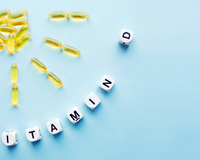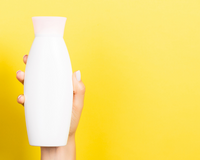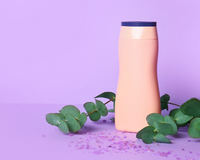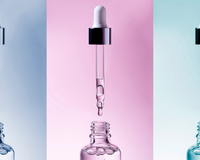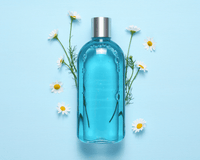Anti Aging Feet Products Containing B3 And Niacinamide
Even if having beautiful feet isn't important to you, feet are awesome because they carry us through life. From our first steps to the workout or yoga class we did this morning, feet are awesome. And if you're like most people, your feet have probably been through a lot. This is especially true if you've worn heels or shoes that don't fit well, run a 5k, or gone barefoot in the summer. So, using anti aging feet products containing b3 and niacinamide might be beneficial.
All that use and abuse can make things worse. In fact, many people are very self-conscious about how their feet look. And it seems like this self-consciousness only gets worse as time goes on. As you get older, you get wrinkles on your face and age spots on your hands, and the same thing happens to your feet. Skin that used to be smooth, soft, and supple can get dry, rough, leathery, cracked, and full of sunspots and lines.
But you don't want to give up sandals and flip-flops, so it's important to do what you can to protect your feet as you get older.
What Are The Best Anti Aging Feet Products Containing B3 And Niacinamide?
The fat on the bottoms of the feet is called "adipose" tissue. When you walk, run, dance, or play sports, these fat pads take the shock away. This layer of tissue protects the bones, ligaments, tendons, nerves, and blood vessels in the feet. Without these fat pads, it would hurt a lot to walk.
Collagen and elastin make up the walls of adipose tissue, which is fat. Collagen and elastin are probably already things you know about. They are proteins that your body makes on its own. And they give skin, bone, and connective tissue their shape and structure. Collagen and elastin are what keep skin firm, smooth, elastic, and young-looking.
As people age, their bodies make less collagen and elastin, and the collagen and elastin they do have tends to break down. When collagen and elastin break down, the fat pads on your feet get smaller, which can make walking hurt more. And, just like the face, the skin on the foot can start to get wrinkles and other signs of aging.
Why Using Anti Aging Feet Products Containing B3 And Niacinamide Is Better?
Putting on a moisturizer or anti-aging product with Vitamin B3 or niacinamide is one way to fight the signs of collagen breaking down in the feet. This powerful anti-aging ingredient fights wrinkles, makes skin more flexible, and makes it smoother.
Eating a lot of collagen protein can also help your body make more collagen. Eggs, fish, and bone broth from cows are all good places to get collagen. You could also try taking a collagen supplement. Studies have shown that collagen supplements can help the body make more collagen and slow the rate at which it loses collagen. This gives the skin a smoother, firmer look.
Feet Scrubs For Aging Skin
Because feet do so much, the skin on them is thicker than skin on other parts of the body. But over time, that skin can get thick enough to get rough and leathery.
Exfoliate your feet often to help keep the skin smooth and soft. Soaking your feet in warm water to soften the rough skin is one way to do this. Then, use an exfoliant to gently scrub away the dead, rough skin, making sure to avoid the sensitive, softer parts of your skin.
Hydrating
To kill two birds with one stone, use an exfoliant that has a hydrating and anti-aging ingredient like jojoba oil. This will make sure that your newly exposed skin stays hydrated and free of wrinkles.
After you've scrubbed your feet, put a lot of moisturizing cream on them. Keeping your feet moist will not only help smooth out the skin, but it will also keep your feet looking young.
Minimize Sun Damage
UV rays can hurt the skin on your feet just like they can hurt the skin on the rest of your body. Sun exposure is one of the main reasons why skin ages faster than it should. In fact, UV rays are to blame for an incredible 80% of skin aging. UV rays cause free radicals, which break down collagen and cause sunspots, wrinkles, and crepey skin.
When you wear sandals, make sure to rub a broad-spectrum sunscreen with an SPF of 30 or more into the tops of your feet to protect them from the sun. Your skin will be protected from both UVA and UVB rays by a broad-spectrum sunscreen. UVA rays damage the skin deep below the surface, while UVB rays cause sunburns on the skin's surface. Both types of rays speed up the signs of aging and make it more likely that you'll have serious skin problems.
Want to improve how well you protect yourself from the sun? Eat foods that help repair damage from the sun. Here are some good, healthy snacks: Broccoli, strawberries, and red peppers are all high in vitamin C, which can help prevent sunburns and age spots.
Pomegranate seeds are high in ellagic acid, which helps protect the skin from UVB rays. Green tea has polyphenols that protect against UV rays. You can drink it hot or cold.
Take Care Of Your Toenails
Even if you don't think about it often, it's important to take care of your toenails. If you don't take good care of your toenails, you might get ingrown nails, smelly feet, or fungus, which can make your nails thick and yellow. Not at all!
Use a towel to dry your feet. Any moisture left on your feet can lead to smells, bacteria, and fungi. Always try to keep your feet as dry as possible. Put on cotton socks and shoes that let air in.
Don't walk around barefoot in the gym's locker room. Wear sandals. Instead of rounding your toenails, cut them straight across. This will help keep them from growing in.
Enhance Visible Veins
As you get older, your skin gets thinner, and the veins underneath may become more obvious. As if that wasn't bad enough, veins often get permanently bigger as you get older.
Use a cream with a lot of flavonoid extracts, like grapefruit, green tea, or pomegranate, to stop your pupils from getting bigger than they need to be. Don't just focus on your face when you want to look younger. Don't forget that your hard-working feet also need care and attention.


